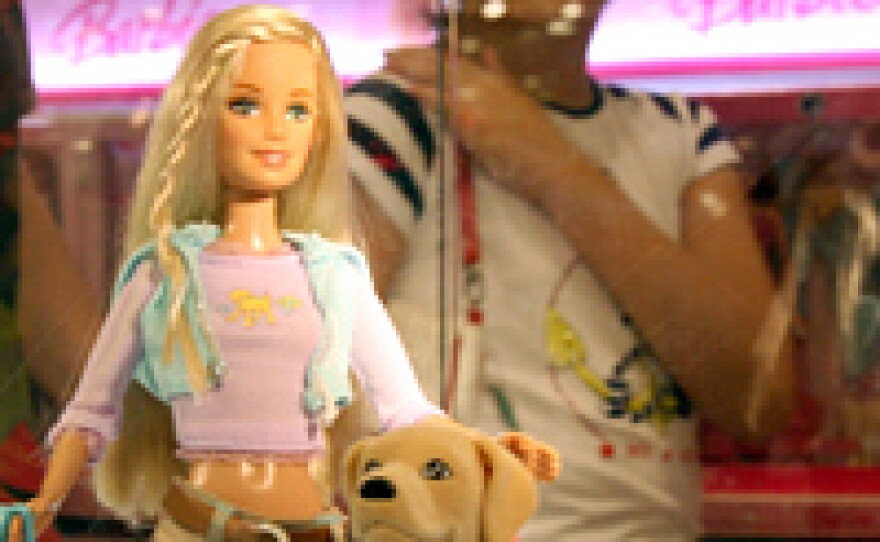

Yet another recall has further battered the international reputation of the "Made-in-China" brand, but the question of who should take the blame for quality problems isn't an easy one to answer.
Despite the recalls, there's no shortage of international buyers in the toy section of the world's biggest wholesale market in the Chinese city of Yiwu. China now makes 70 percent of the world's toys and with the holiday season approaching, there's little time to find other sources.
"The toys [are] not dangerous for me, not dangerous in our country," insists Ahmed Abu-Nafal, an Iranian importer. It's "no problem, because our country … needs a cheaper price, and [the toys are] good quality here."
He Songping, who was inspecting workers making plastic Christmas trees in his factory, acknowledged some manufacturers were cutting corners. He said multinational corporations were forcing down prices to a level where factories can only make money if they cheat.
"Now many factories offer prices so low they can only make two percent profit. Then they use lower-quality ingredients, so their profit is actually ten percent. That's how they cheat clients," said Songping.
That is known as "quality fade."
Paul Midler, the founder of China Advantage, a consulting company that promotes business with China, said the political environment is one factor driving quality fade. China's business sector feels it is at the whim of government officials who behave unpredictably, changing regulations at will. As a result, factories feel they have to make a quick buck while they can.
Midler said other considerations also come into play.
"One of them is China's lack of accountability," he said. "It's very difficult for importers who run into trouble with products they're importing from China, it's difficult to pursue legal action against those Chinese companies."
"Another factor is that suppliers are relatively anonymous. If somebody's caught doing something illegal, it's difficult to get the word out and let others know that a particular supplier is a problem," Midler said.
Children's jewelry is another sector dogged by controversy, with recent tests finding 20 percent of jewelry examined had dangerous levels of lead.
For British jewelry buyer Paul Levrant, the answer is to step up testing.
"Our handling people here know our requirements and know the regulations in the U.K.," Levrant said. "A lot of it is sour grapes that China's taking manufacturing away from other traditional sources and people will get them any way they can."
As goods are packed up for shipping, it's worth remembering that products recalled make up a very small percentage of China's exports. Recalled toys and games account for less than two percent of exports in the first half of this year, while food and agricultural products that have been targeted account for less than three percent.
Stephen Green, a senior economist with Standard Chartered, said the current scares won't change the big picture.
"From the macro-perspective, the issues about product quality are not that important," Green said.
"We are forecasting another massive trade surplus this year for China - $320 billion - the biggest ever on record, probably bigger next year as well," he said. "The export engine is not going to be derailed by these sort of worries."
Even so, consumer backlash against Chinese-made products could still be damaging. Many Chinese now believe the issue of quality standards is politically motivated, and is being used by the U.S. as a new trade barrier against Chinese products.
Copyright 2022 NPR. To see more, visit https://www.npr.org. 9(MDAzMjM2NDYzMDEyMzc1Njk5NjAxNzY3OQ001))







